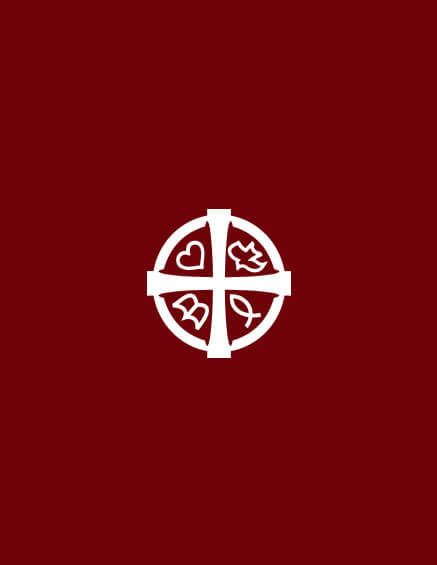The Book of Jonah – Part 2
The water hitting his skin must have felt like a thousand pins piercing at the same time. If he had been sleeping soundly earlier, this would have surely woken him up! One moment he was dreaming and snoring abroad a ship; and the next he was being thrown off its side into the icy cold water of the Mediterranean by a group of angry people! Warm and cozy one moment; cold and shocked the next. And before he could come up for air, he felt like he was being swooped up. Was it a wave, a swirl or a large fish? And then everything went dark, pitch dark.
Welcome to Chapter 2 of the book of Jonah – the prophet who tries to out-run God.
In this chapter we see God’s mercy and providence bringing a rebellious run-away prophet to repentance in the unlikeliest of all places – in the belly of a giant fish.
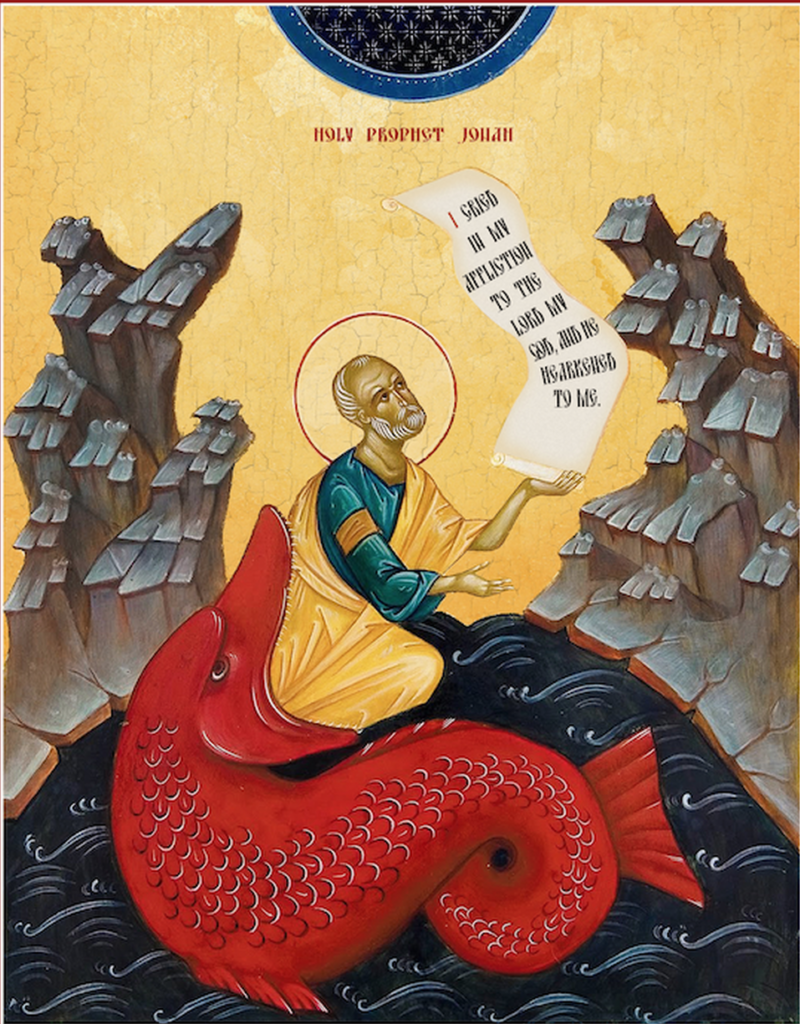
Fear of death can drive even the most rebellious individual to call out to the Almighty. And Jonah had the scariest of all under-water experiences, ever. He describes the feeling of extreme fear and of seeing death face to face. What happens in Chapter 2 is that Jonah is swallowed by this big fish. And there, from inside the fish, when all hope seemed lost, when surrounded by darkness all around, Jonah prays. And Jonah realizes that God is still merciful, as he prays a prayer of repentance and calls out to God to save him. [We can read the prayer from verses 1 –9]
“In my distress I called to the Lord… From deep in the realm of the dead I called for help…When my life was ebbing away, I remembered you, Lord, and my prayer rose to you…”
And in the belly of the fish, Jonah spends, not a couple of minutes or even hours, but three days and three nights. I guess, that was more than enough for Jonah to realize how true Psalm 139: 8 was:
“Where can I go from your Spirit? Where can I flee from your presence? …if I make my bed in the depths, you are there.”
And God, like the father in the Prodigal Son’s story, was waiting for Jonah to come to ‘his senses’. And I imagine God must have said – Jonah, you must be tired of running away from me. No, don’t look for any ship to take you to your destination; this big fish is mine; it will drop you off at the right spot. And then last verse of that chapter happens – the big fish threw up the prophet on dry ground. The rest as we say, is history.
But what we learn from chapter 2?
Lesson 1: #prayfortherebellious
Jonah was rebellious. He tried to out-run God. But only ended up proving God’s love for the rebellious.
If we carefully read the book of Jonah, we can see how God was working behind the scenes, ordering the circumstances in the life of Jonah, to bring him to a place of repentance.
God sent a great wind (the storm) on the sea (Jonah 1:4). God provided a huge fish to swallow Jonah (Jonah 1:17) And finally the Lord commanded the fish to vomit him onto dry land (Jonah 2:10).
Romans 2:4 says, ‘the goodness of God leads to repentance’. God’s eternal wish is that no one perish in their rebellion – 2 Peter 3:9. Jonah was disobedient, but God did not forsake him. And that gives us immense hope.
Maybe you know someone who is trying to out-run God. Maybe it’s your spouse, your child, your father, your neighbour or a close friend. They might be going to wrong way, running away from God. But keep praying that God will order circumstances in their lives, so that they will come to ‘their senses’, that they will come to repent and turn towards God.
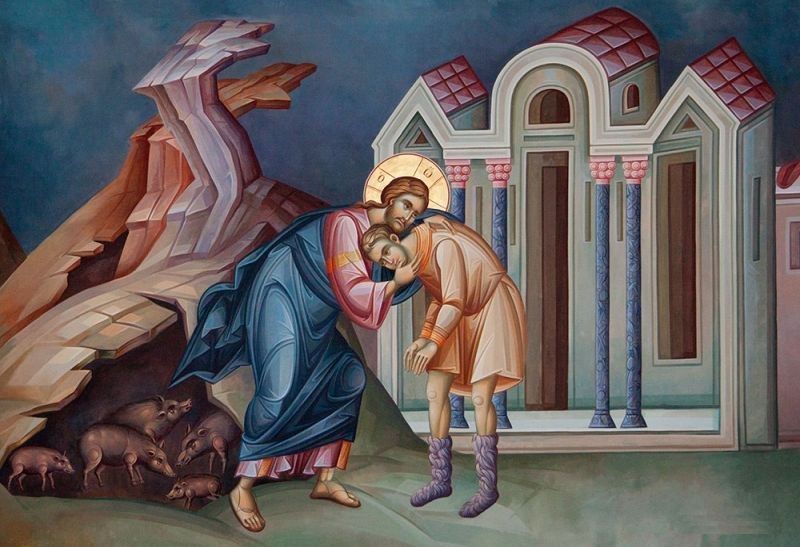
We see the same thing happen to the Prodigal Son. (St. Luke 15: 11- 32) The young man was rebellious and disobedient. He wanted to enjoy his life without any thought of consequences. The loving father, let him go, although he knew that he was doing was wrong. But the father kept on looking for his son to come back. It’s a beautiful picture of his father not giving up hope and keeping on trusting God to help his son realize his mistakes. In the story, after a while of enjoyment, things go bad for the son. Finally circumstances in his life make him come to ‘his senses’. The son comes back and tells his father – ‘I have sinned against you and God, please forgive me’. The father in the story, who is an image of our heavenly Father, runs to him, embraces him, and not only forgives him, but restores him to his rightful place.
There may not be a more powerful story than that of Monica and her son. Although she tried to bring her children up in the faith, her brilliant son Augustine rebelled and went away from his home. He was too smart for her. Too rebellious for any counsel. He lived a care free life, in all possible sinful vices for many years. But his mother continuously kept praying for her son. Finally, while in another city far from his home, Augustine meets Ambrose, an elderly and godly bishop of the church. This meeting so powerfully impacts Augustine who repents and turns to Christ. This young man, who later became Bishop Augustine, one of the most influential the early church says: ‘my mother for years wept over me, so that I might live in God’s sight’. It his mother’s persistent prayers that Augustine found Jesus.
Keep praying; keep hoping that the rebellious will be shown mercy.
Lesson 2: #thesign
Many think the story of Jonah as a mythological one. But did you know that Jesus himself refers to the story of Jonah?
Here is the context. During Jesus’ time, many wanted to have a clear sign in order to believe that Jesus was indeed God incarnate. Of course, they had the miracles which Jesus had done to look at. But in their unbelief, they kept on asking for a sign. So, Jesus replies and says that no sign except the ‘sign of Jonah’ would be given [St. Matthew chapter 12: 39,40]
Now, what is this sign Jesus is talking about? Although not very clear at that time, later on it becomes abundantly clear. What Jesus is saying is that, just like Jonah, Jesus will be in the heart of the earth for 3 days and 3 nights and then come out alive and victorious for all to see. Jesus was referring to his death, burial, and resurrection. That would be the only sign people would need to believe that Jesus was indeed God. That is what we believe and confess in the Nicene Creed also – ‘… He suffered, died and was buried, and rose again on the third day in accordance with the Scriptures.’
Now back to the story of Jonah. He came back from the ‘dead’ and was thrown up on dry land. Imagine if this were to happen today. Can you imagine the breaking-news of the day? Maybe there was someone on the seashore who while taking a selfie got the picture of a great big fish throwing up a man on the shore! That would have gone ‘viral.’ Reporters would have made a beeline to interview Jonah. Where are you from? How did this all happen? What was your experience? Jonah’s story would have been incredible, almost unbelievable.
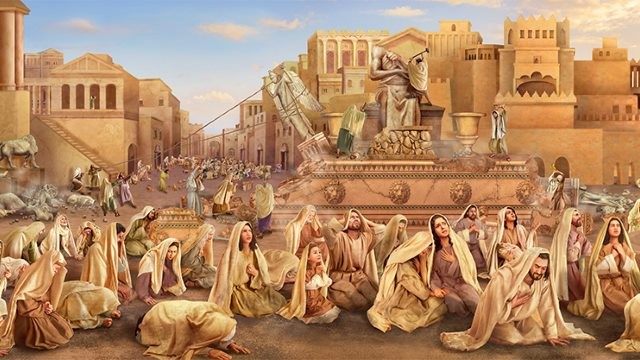
But Jonah used this opportunity to tell the people what God wanted them to hear. ‘Repent! Each one of you! Destruction is at hand! Repent, so that you might be saved!’ One simple message – without any sugar coating; not caring about being politically correct or hurting anyone’s sentiments. Repent or perish!
To their credit, the people of Nineveh the great city did not wait for any more signs. Jonah was their sign. They repented. And just like God was merciful to rebellious Jonah, He was merciful to the entire city of Nineveh.
Living A life of Repentance
Remember the illustration we saw in lesson 1 – when we point one finger at our neighbour, three fingers are pointing back at us? Much in the same way, while Jonah’s finger is pointing at Nineveh, urging them to repent, his 3 fingers are pointing at us, urging us to repent too.
What? Me? Repent? But I’m a Christian; I’ve been a Christian for a long time. I’ve not committed any blatant sin! I’m ok! Yes, we may not say those words exactly, but these thoughts surely came into our minds.
Sometimes we think that just because we raised our hands to say a prayer of repentance, that is enough. Or that we have been born again – by water and the spirit, that’s enough. But that is not the teaching of the church. The holy Church teaches that salvation is a process, is a journey, a journey of repentance.
Let me tell you a story about a holy man named Zosimus who learned that no matter how old you get, Christian life is a life of repentance. Zosimus even as a very young child led a very holy life. Always reading, praying & working hard. He became a spiritual father to many and was fondly called Abba (father). People came to hear his wisdom from far and wide. He was very famous and very, very holy man. After many years of leading a holy life, he started to feel that he had become perfect. I know so much of the Bible. I pray so much. I live such a holy life. Is there anyone who can teach me? Thoughts like these started to trouble him. One day He heard God’s voice telling him to go to a far-off desert place. While there, Zosimus met an old woman named Mary, who had been living a solitary life of repentance for 47 years! Mary had lived a very immoral life when she was young. But in God’s mercy He showed her the path of salvation and since then, she had lived in the desert, all alone, living of little food and water, always praying and repenting. St. Mary of Egypt (as she was later known) had never met Zosimus before, but by God’s special revelation knew all about Zosimus – who he was and why he had come. The many miracles she did, the wisdom in her words, the holy life she lived all proved to Zosimus that he was far from perfect in his life. In fact, the secret to a holy life, told old saint Mary, was to live a life of constant repentance.
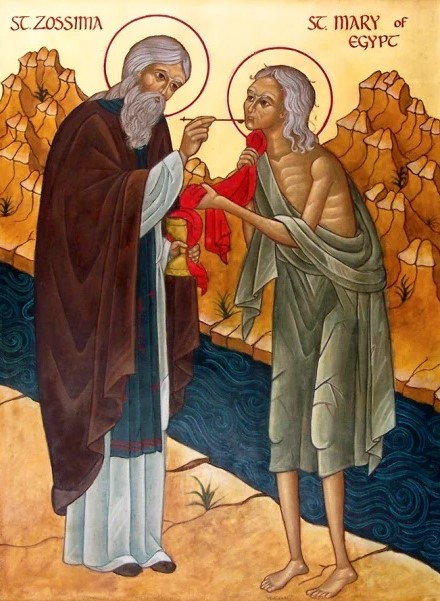
These kinds of thoughts can come into our life also. That is why the church teaches us to live a life of repentance, daily, weekly and seasonally and not just a once in a life time experience of repentance.
Repent Daily
#repentdaily #jesusprayer

How can you and I practice leading a life of repentance daily? The church has provided us a short and powerful weapon for it. It’s called the Jesus Prayer. For more than 1000 years, the church has used the Jesus Prayer to help us lead a life of daily repentance. The Jesus Prayer (taken from the parable of the publican and sinner in St. Luke’s gospel) is perhaps the shortest, the most complete and most powerful prayer. It says –
Jesus Christ, Son of God, have mercy upon me a sinner.
Church teaches that this prayer can be said repeatedly and slowly, over and over again many times a day. To aid in prayer, the prayer rope is also used by many faithful of the church.
There’s a simple way to remember this prayer.
Who am I praying to? Jesus Christ.
Who is Jesus Christ? He is the Son of God.
What do I need? For Him to have mercy on me.
Who am I? A Sinner.
Let us learn to pray this prayer every day.
Repent Weekly
#repentweekly #kyrieeleison
How can we practice the life of repentance every week? When we come on Sundays, to worship the Lord, for the Divine Liturgy, do you know the words that are the most repeated?
It is: ‘‘Kyrie Eleison’ (the Greek words for ‘Lord have mercy’)
Multiple number of times we say the words – Lord have mercy. The word used for mercy in the original text comes from (and is related to) a root word for oil. The same word is used to refer to the healing oil used by the Good Samaritan to bind the wounds of the man who was beaten up, bruised, and wounded in the parable. So, when you say – ‘Lord have mercy’, you are saying – Lord, I am hurting. Please heal me. Please Lord – not just my body, my soul is hurting; my emotions are hurt; my mind is hurt. Heal me, O Lord. Pour your oil over me and heal me with your loving kindness. That is what we mean when we say ‘Lord have mercy.’
This way we can live the life of repentance every week.
A Season of Repentance
#seasonsofrepentance #ninevehlent
Apart from this, the church has also given us seasons of repentance*, where we focus on repenting of our sins; and one of them is the three days of Nineveh Lent in the beginning of the year –
remembering the people of Nineveh who repented of their wicked ways and how God showed mercy on them (this is where the story of Jonah comes in!)
Even as we spent time to pray for those who are rebellious and running away from God, may we take time to look at ourselves and learn to live a life of repentance.
* the other seasons are Great Lent, Apostles Lent, Dormition lent and Nativity Lent.
Click here to read the first part of the Book of Jonah Click here to read the third part of the Book of Jonah